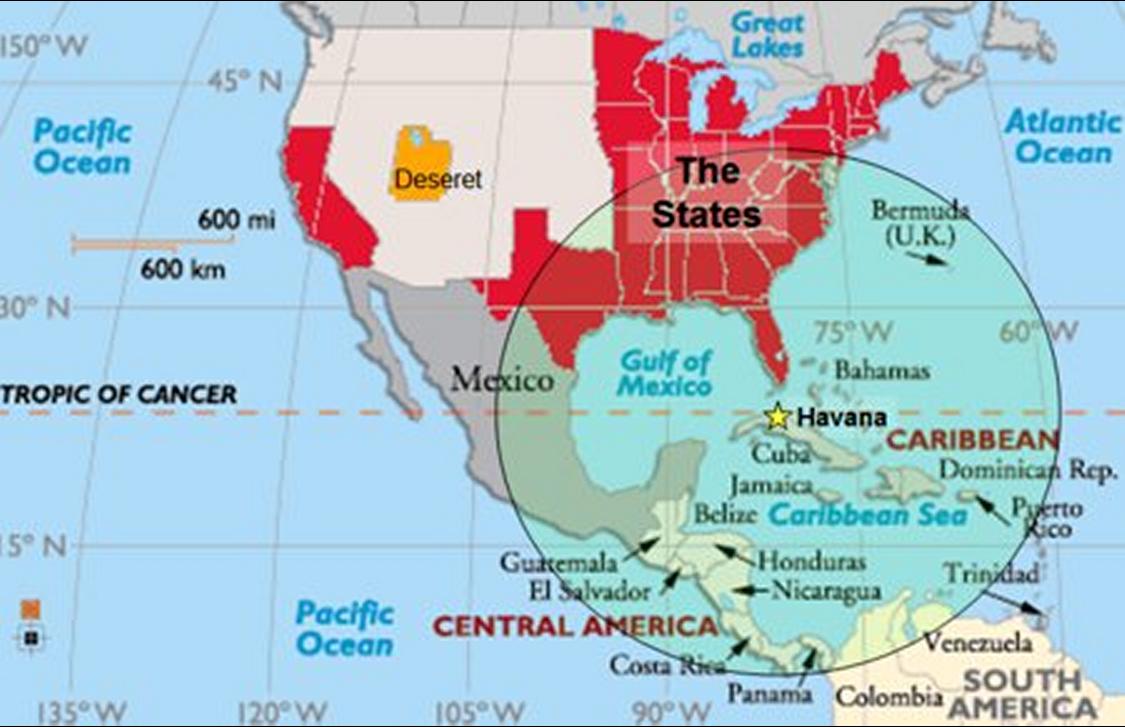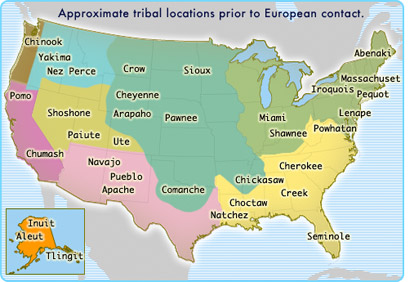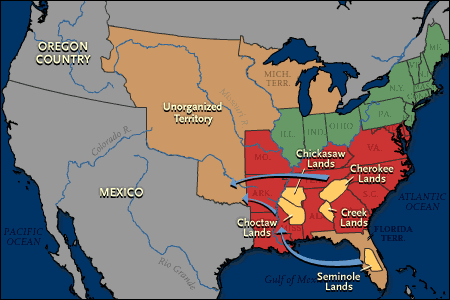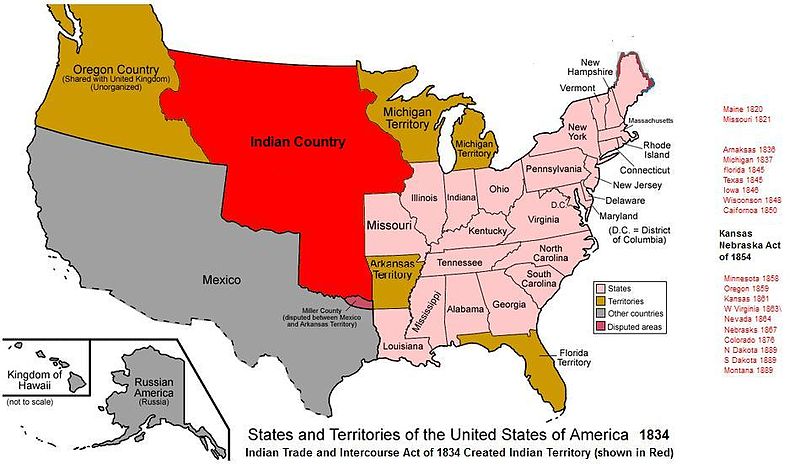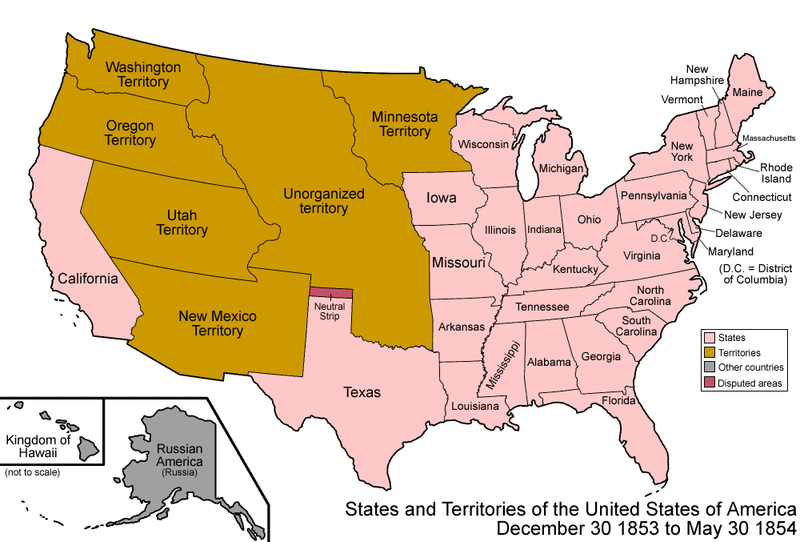Secession was the key point that made us a nation in the first place. Simply reading the declaration of independence we have to by our nature honor the idea of succession if states feel called to it.
Succession in 1860 however was different. The only reason the south succeeded was for slavery. Some southerners will tell you it was for "states rights," but really what was the only right they were talking about? Only slavery which really opposed the views of the founding fathers, Jefferson wanted to make it illegal in the original draft of the constitution but he was talked out of it so they southern states would support he war, Jefferson understood slavery was a battle for another day.
In the movie Gettysburg Robert E Lee says "we should have freed the slaves and then attacked Ft Sumter". If that was really how the south felt, and they did that, we'd be looking at the south a lot different. The Union certainly had it's faults as well, Lincoln originally avoided the slavery issue at all costs, and some suggest Lincoln used the slavery issue to hold control of the south and it wasn't really a priority to the Union at all. The North was no lest racist then the south. Robert E Lee and Jackson were very Godly men, but really I think The Union had a real case there because the South was not protecting the rights of all of it's inhabitants, if the south had just disagreed in ideology and how to run their states it would have been a different scenario.
It is indeed true that the North, concerning slavery/racism, had just as many issues as the South - with the North practicing slavery via wage slavery where blacks were able to integrate/not be in chains and yet not have equal access to resources as whites did...thus being regulated to the slums. The South would later allow Neo-Slavery in the form of Jim Crow after the Reconstruction -and many historians have pointed out where Lincoln was really only concerned with slavery in the sense of severe abuse toward slaves - but never had any remote concern for the slaves being seen as intellectual/moral equals to whites (more noted in-depth here in #
1). He even noted directly that he would have sought to win the Civil War without freeing blacks if he could of - and thus, many blacks/whites felt it was about pragmatism on the part of the North more so than concern for the plight of blacks.
Nonetheless, what the South was doing was without excuse - and the issue of slavery was long in view. For after the American Revolution, the issue of how to address blacks was an elephant in the room that would not go away if the ideals of freedom were to be truly supported as were proclaimed - and as Fredrick Douglass noted, what was the 4th of July to a Slave but American Hypocrisy?
The film
"Amistad" does an excellent job on the issue, discussing one of the key cases that led into the Civil War later. Amistad was the name of a slave ship traveling from Cuba to the U.S. in 1839. It was carrying a cargo of Africans who have been sold into slavery in Cuba, stolen/beaten and taken on board, and chained in the cargo hold of the ship. As the ship was crossing from Cuba to the U.S., Cinque, who was a tribal leader in Africa, lead a mutiny and took over the ship. They continued to sail, hoping to find help when they landed. Instead, when they reached the United States, they were imprisoned as runaway slaves. They didn't speak a word of English, and it seemed like they are doomed to die for killing their captors when an abolitionist lawyer decided to take their case, arguing that they were free citizens of another country and not slaves at all. The case finally got to the Supreme Court, where John Quincy Adams made an impassioned and eloquent plea for their release.
John Quincy Adams prophesied how the Civil War itself would indeed be the completion of the American Revolution if slavery could not be resolved properly...
Sadly his words were not heard - and many have long made it out as if the slavery issue was not a key issue behind the secession of the Southern States. As much as others may feel that it should have been allowed and the Union fought against, there were MANY things at stake that caused a lot of reasons to be fearful. For the secession made room for other nations to jump in and support an immoral practice on a global scale.
Many have no idea on how they were Confederate Slave owners who moved to Brazil (called the Confederados), as the slave trade was international and it opened up doors for commerce/business relationships throughout the Americas.
As another noted:
During its heyday in the nineteenth century, the African slave trade was fueled by the close relationship of the United States and Brazil. The Deepest South tells the disturbing story of how U.S. nationals - before and after Emancipation -- continued to actively participate in this odious commerce by creating diplomatic, social, and political ties with Brazil, which today has the largest population of African origin outside of Africa itself.
Proslavery Americans began to accelerate their presence in Brazil in the 1830s, creating alliances there—sometimes friendly, often contentious—with Portuguese, Spanish, British, and other foreign slave traders to buy, sell, and transport African slaves, particularly from the eastern shores of that beleaguered continent.
Spokesmen of the Slave South drew up ambitious plans to seize the Amazon and develop this region by deporting the enslaved African-Americans there to toil. When the South seceded from the Union, it received significant support from Brazil, which correctly assumed that a Confederate defeat would be a mortal blow to slavery south of the border. After the Civil War, many Confederates, with slaves in tow, sought refuge as well as the survival of their peculiar institution in Brazil.
The history of the Conferados is truly fascinating..and for more, one can investigate a read entitled "
The Deepest South: The United States, Brazil, and the African Slave Trade" ( ):
Having roots in Latin America, I'm aware of how the abuses in slavery were even worse there (and in the West Indies as well) than in North America....and I know there has always been strong racism present due to what the Portuguese and Spaniards did in coming over/setting up the systems they did. Thus, no surprise to see what happened with the active development of relationship between others in the American South and those in the Southern Hemisphere. The American Civil war even managed to spill into Brazil, as seen in the
Bahia Incident ( a naval skirmish fought in late 1864 during the American Civil War where a Confederate States Navy warship was captured by a Union warship in Bahia Harbor, Brazil...and the engagement resulted in a United States victory, but also sparked an incident with the Brazilian government, which claimed the Americans had violated Brazil's neutrality by illegally attacking a vessel in their harbor..nore
shared here).
The SOuthern States that desired to secede wanted to create a new International Empire called the "Golden Circle" that would've taken slavery onto an entirely different level. For
what occurred with the Golden Circle (proposed country) was the unrealized pan-Caribbean political alliance of the 1850s, organized chiefly by United States adventurers, and envisioned the incorporation of several countries and states of the Americas into a federal union similar to the United States...it would've forced the states in the U.S to really reconsider a lot of things.
The balance of power between the northern and southern U.S. states was threatened by the proposed Golden Circle since Federalists feared that a new Caribbean-centered coalition would align the new Latin American states with the slave states in the US..tilting the balance of power southward and weakening U.S. federalism in favor of the Pan-American confederalist union, whereas those Americans in favor of the Gold Circle believed that an alignment with the remaining slaveholding Caribbean territories would reinforce their political strength.
Some have noted where there were black slave owners and having them involved made a difference - as seen in
Black slave owners in the Golden Circle | Southern Nationalist - and it's amazing seeing how the narrative of all blacks being against the confederacy doesn't line up with history.
For more, one can study Chesteron's 1922 work called
What I Saw in America. What Chesteron noted is especially considering the timing of it being written in 1922. This was less than 60 years removed from the Civil War. That would be like someone writing about Korea and Vietnam right now. The memories and direct consequences of those wars are still very real to us today. Chesterton was born in 1874, only four years after Virginia itself was re-admitted to the Union (1870). The crushing of secession was ultimately written down in history as the “right” thing to do, only because, ultimately, most Southerners accepted it as simply immutable. ...and to be clear, as
many blacks fought in the Civil War on the side of the South for their own reasons (freedom being one of them (more
here/
here /
here)as
well as the fact that not all in the South endorsed slavery nor abuse as many in the North claimed---and for them, the North often didn't have much to offer). The Reconstruction was to be the re-programming of the Southern mind. It worked, and now Lincoln is seen as great. If, as Chesterton alludes to with his Irish example, the Southern spirit had continued to buck
against centralized government and the resistance had continued into the twentieth century, Lincoln would be viewed more like Cromwell than Bismark.
And had the Confederacy won, who knows the ways things would have turned out for others in the Caribbean. There were people on both sides concerned for the welfare of minorities...and there were people on both sides who couldn't of cared less about the plight of blacks. History is truly complicated...
There's actually a very amazing mockumentary on the issue entitled
C.S.A.: The Confederate States of America (more
shared here ) -as it explores the results of a Southern victory in the Civil War and posits the Golden Circle as a plan enacted after the war. One of the most wild and yet challenging critiques I've ever come across...
